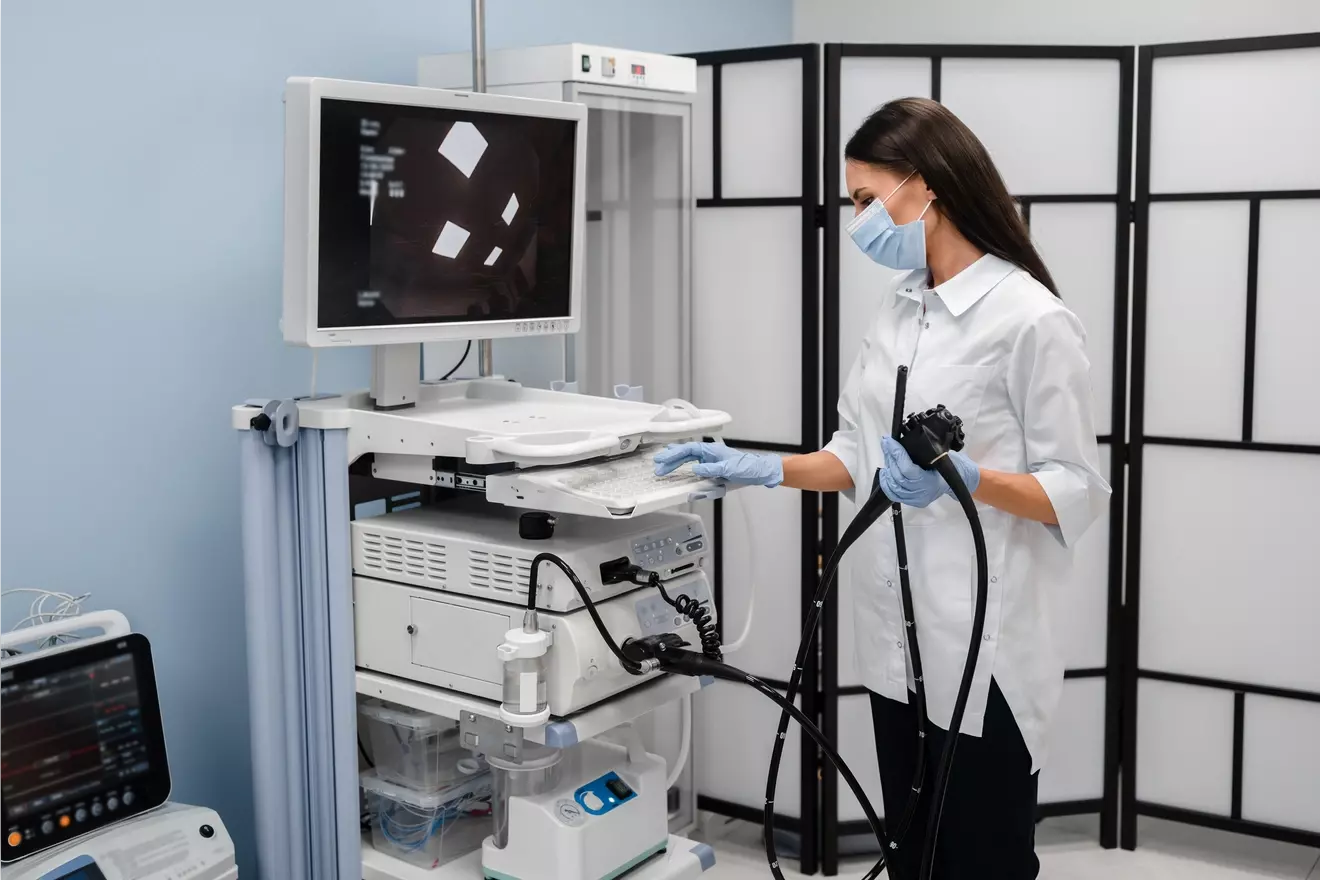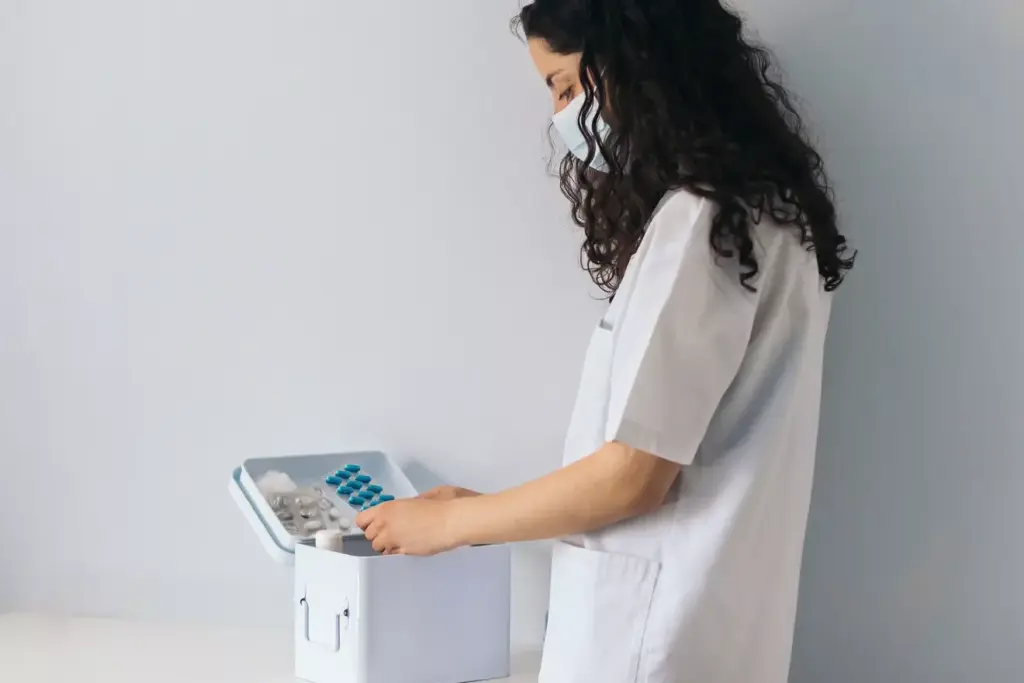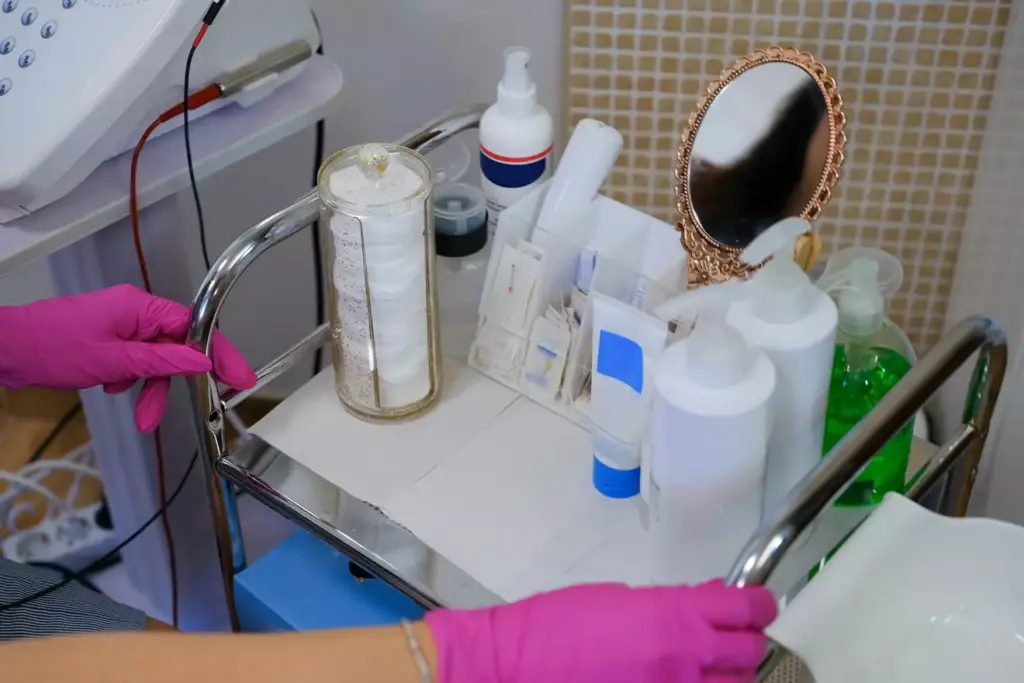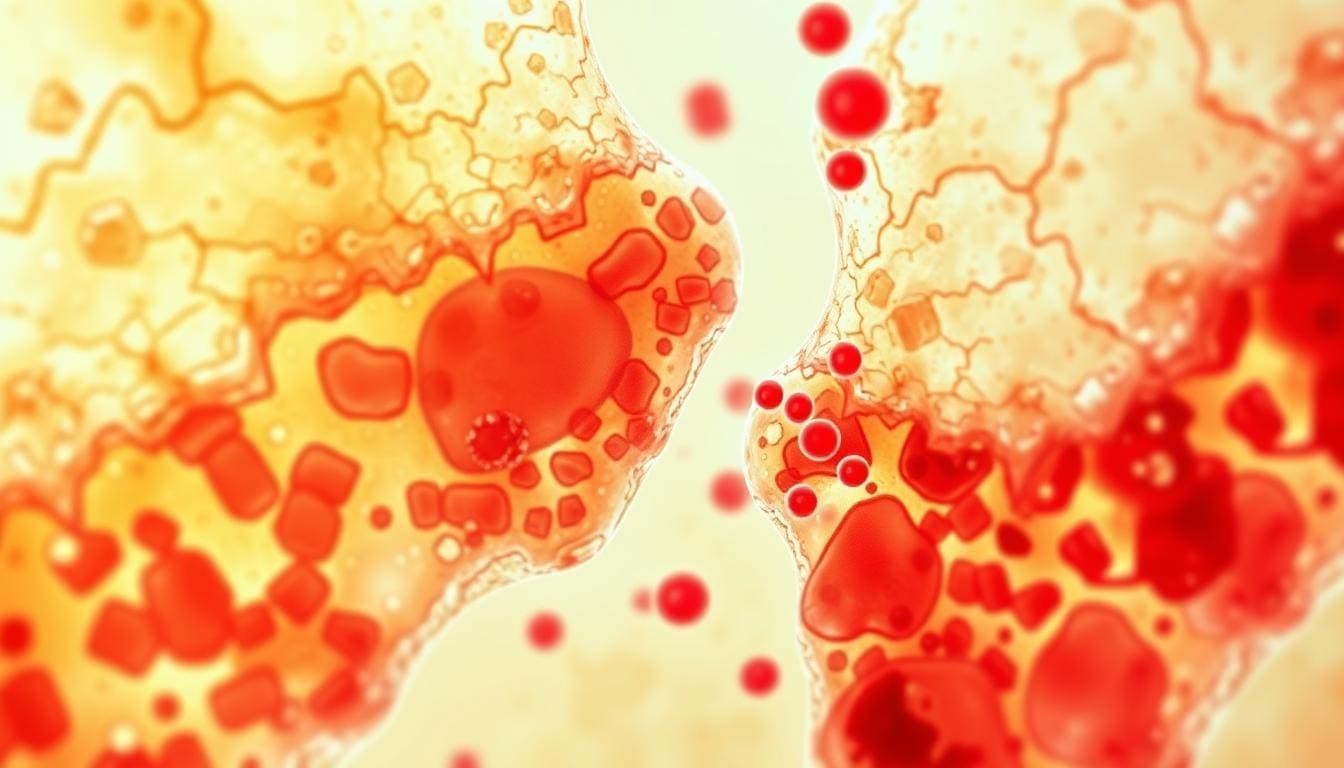Last Updated on November 27, 2025 by Bilal Hasdemir

New cancer treatments, like CAR T-cell therapy, use screen cart antigens to fight cancer at the molecular level.
At Liv Hospital, we focus on top-notch healthcare that puts patients first. We use the latest antigen screening technology to improve treatment results.
Knowing how antigen display systems work in cancer treatment is key for those looking for the best care. This article will dive into seven important facts about screen cart antigens and their role in custom cancer treatments.
Key Takeaways
- CAR T-cell therapy is a groundbreaking cancer treatment that utilizes screen cart antigens.
- Antigen screening technology enhances the efficacy of cancer therapies.
- Liv Hospital is at the forefront of personalized cancer treatment.
- Understanding antigen display systems is vital for effective cancer therapy.
- Screen cart antigens play a critical role in targeting malignancies.
The Evolution of Cancer Immunotherapy
Cancer treatment has changed a lot with cancer immunotherapy. This new method has helped us understand cancer better. It also offers new ways to treat it.
We’re moving from old, often harsh treatments to new, targeted ones. These new therapies are more precise and less harmful.
From Traditional Treatments to Targeted Approaches
For years, chemotherapy and radiation were key in fighting cancer. But they can hurt healthy cells too. This is because they’re not specific to cancer cells.
Cancer immunotherapy is different. It boosts the body’s immune system to fight cancer. This method is more precise and might be less toxic.
Targeted therapies are another big step. They aim at specific molecules in cancer cells. This way, we can stop cancer from growing without harming healthy cells.
The Promise of Precision Medicine
Precision medicine is a new way to treat cancer. It tailors treatments to each patient’s cancer. This method uses advanced tests and knows a lot about the cancer’s genes.
By finding specific biomarkers and genetic changes, we can pick the best treatment. This makes treatment more likely to work.
- Precision medicine leads to better treatment plans.
- It cuts down on the guesswork of old treatments.
- It makes treatments fit each patient better, improving their life and health.
Adding immune response analysis to precision medicine has made treatments even better. We can now predict how well a patient will respond to immunotherapy. This helps us make treatment plans that work best for each person.
What Are Screen Cart Antigens and How Do They Work?
Screen cart antigens are key to understanding modern cancer treatments like CAR T-cell therapy. They are proteins on cancer cells that the immune system can spot. These antigens help CAR T-cells target and kill cancer cells.
Defining Screen Cart Antigens in Cancer Treatment
Screen cart antigens are proteins on cancer cells that the immune system can recognize. These antigens are targets for CAR T-cells, making treatment precise and effective. CAR T-cells bind to these antigens, destroying cancer cells while protecting healthy ones.
Finding the right screen cart antigens is a complex task. It involves advanced technologies like high-throughput screening and bioinformatics. This ensures the chosen antigens are specific to cancer, reducing harm to healthy cells.
| Antigen | Cancer Type | CAR T-cell Therapy Status |
|---|---|---|
| CD19 | Leukemia, Lymphoma | Approved |
| BCMA | Multiple Myeloma | Clinical Trials |
| CD22 | Leukemia, Lymphoma | Clinical Trials |
The Relationship Between Antigens and CAR T-Cells
The bond between screen cart antigens and CAR T-cells is vital in this therapy. CAR T-cells are made to find and bind to specific antigens on cancer cells. Once they find these antigens, they attack and kill the cancer cells. This targeted method makes treatment more effective and safer.
Research in CAR T-cell therapy is advancing fast. We’re finding new antigens and making treatments better and safer. As we learn more about screen cart antigens, we’re getting closer to more effective cancer treatments.
Key Fact 1: Screen Cart Antigens Serve as Unique Cancer Cell Markers
Screen Cart Antigens are key in finding cancer cells accurately. They help treatments hit the right cells, avoiding harm to healthy ones. These antigens are vital for telling cancer cells apart from normal ones, which is key for good treatment.
The Specificity of Cancer Cell Identification
Finding cancer cells means spotting specific markers on their surface. Screen Cart Antigens act as these markers, making cancer therapy more precise. The accuracy of antigen identification is critical for treatment success.
Advanced methods like peptide mapping service help us understand these antigens. This knowledge is essential for creating targeted treatments.
The Importance of Antigen Selection
Picking the right antigen is essential in cancer treatment. The antigen must be on cancer cells but not on healthy ones to avoid harm. Antigen selection requires studying cancer cells’ surface proteins to find the best target.
The table below shows what to consider when choosing an antigen for cancer therapy:
| Antigen Characteristics | Ideal Features | Impact on Therapy |
|---|---|---|
| Specificity to Cancer Cells | High expression on cancer cells, low on healthy cells | Reduces off-target effects, enhances safety |
| Stability and Expression | Consistent expression across cancer cell population | Ensures uniform targeting of cancer cells |
| Immune Evasion | Minimal immune evasion mechanisms | Promotes durable treatment response |
In summary, Screen Cart Antigens are essential for identifying cancer cells. Their specificity and the careful choice of antigens are key to successful cancer treatments. Using advanced technologies like peptide mapping services helps us better use these antigens, leading to better patient results.
Key Fact 2: The Role of CD19 as a Primary Target Antigen
CD19 is a key antigen in CAR T-cell therapy. It has shown great promise in treating leukemia and lymphoma. This protein is found on B cells, making it a perfect target for CAR T-cell therapy in B-cell cancers.
CD19 in Leukemia and Lymphoma Treatment
CD19 is a main target in treating leukemia and lymphoma. It is highly expressed on malignant B cells. This makes it a great target because it can destroy cancerous B cells without harming other cells
Key benefits of CD19-targeted CAR T-cell therapy include:
- High response rates in patients with relapsed or refractory B-ALL and NHL
- Durable remissions leading to improved long-term survival
- Potential for reduced need for subsequent treatments
Beyond CD19: Emerging Target Antigens
While CD19 has been successful, researchers are looking for new targets. They want to use CAR T-cell therapy for more cancers, including solid tumors. New target antigens are being explored for this purpose.
Some of these emerging targets include:
- BCMA (B-cell maturation antigen) for multiple myeloma
- CD22 for B-cell malignancies
- GD2 for neuroblastoma
- Mesothelin for mesothelioma and ovarian cancer
As research continues, finding new target antigens is key. It will help make CAR T-cell therapy more effective for more patients.
Key Fact 3: The Precision of Screen Cart Antigens in Targeted Therapy
Screen cart antigens are changing targeted therapy by allowing for the precise killing of cancer cells. This is key in cancer treatment. It lets doctors target cancer cells without harming healthy tissue.
Thanks to screen cart antigen technology, cancer treatment is getting a big boost. We can now find specific antigens on cancer cells. This leads to treatments that work better and have fewer side effects.
Selective Destruction of Cancer Cells
Screen cart antigens help CAR T-cells find and destroy cancer cells. This method makes sure cancer cells are killed without harming nearby healthy tissue.
The process uses high-throughput antigen screening to find the best antigens to target. This makes treatments more effective and lowers the chance of harming healthy cells.
Minimizing Off-Target Effects
Using screen cart antigens in targeted therapy also means fewer off-target effects. By picking antigens mostly found on cancer cells, we lower the risk of harming healthy cells.
This precision comes from advanced technologies that let us study cancer cell antigens closely. So, we can make therapies that are not just more effective but also safer for patients.
Our focus on targeted therapy is to provide the most advanced and precise treatments. By using the latest in screen cart antigen technology, we aim to improve patient outcomes and change cancer care for the better.
Key Fact 4: Durable Remissions in Hematologic Malignancies
CAR T-cell therapy has shown remarkable success in treating hematologic malignancies. It leads to long-lasting remissions. We look at the data and see who benefits most from this treatment.
Long-term Efficacy Data
Studies show CAR T-cell therapy can cause lasting remissions in some patients. For example, a study found it works well for relapsed or refractory large B-cell lymphoma. The study showed many patients achieved complete remission, with some staying in remission for over two years.
Patient Populations Benefiting Most
Some patients benefit more from CAR T-cell therapy than others. These are those with relapsed or refractory hematologic malignancies who have tried many treatments. It works best for acute lymphoblastic leukemia (ALL) and diffuse large B-cell lymphoma (DLBCL).
| Patient Group | Number of Patients | Complete Remission Rate | Overall Response Rate |
|---|---|---|---|
| Relapsed/Refractory DLBCL | 100 | 40% | 60% |
| Relapsed/Refractory ALL | 50 | 50% | 70% |
The data shows CAR T-cell therapy is a good option for patients with hematologic malignancies. It’s best for those who have tried other treatments and failed. As research keeps improving, we expect even better results for patients.
Key Fact 5: Expanding Applications to Solid Tumors
CAR T-cell therapy was first used for blood cancers. Now, it’s being tested for solid tumors too. This is a big step forward in fighting cancer, giving hope to many.
Current Research Initiatives
Scientists are studying CAR T-cell therapy for solid tumors. They’re running clinical trials to see if it works. They’re looking at specific targets on solid tumor cells.
Key areas of research include:
- Identifying the most effective target antigens for CAR T-cell therapy in solid tumors
- Developing strategies to overcome the immunosuppressive tumor microenvironment
- Enhancing the persistence and infiltration of CAR T-cells within solid tumors
An epitope discovery tool is key in finding target antigens. It helps researchers find specific targets on tumor cells for CAR T-cells.
Overcoming Barriers in Solid Tumor Treatment
There are hurdles to using CAR T-cell therapy for solid tumors. These include:
| Challenge | Description | Potential Solution |
|---|---|---|
| Immunosuppressive Tumor Microenvironment | The tumor microenvironment can suppress the activity of CAR T-cells. | Combining CAR T-cell therapy with checkpoint inhibitors or other immunotherapies |
| Antigen Heterogeneity | Solid tumors can exhibit heterogeneous antigen expression. | Targeting multiple antigens simultaneously using CAR T-cells |
| Limited T-cell Infiltration | CAR T-cells may have difficulty infiltrating solid tumors. | Using oncolytic viruses to enhance T-cell infiltration |
It’s important to tackle these challenges for CAR T-cell therapy in solid tumors. Research and trials are working to solve these problems and improve results.
As research moves forward, CAR T-cell therapy’s promise for solid tumors grows. Understanding and solving these challenges will help more cancer patients benefit from this therapy.
Key Fact 6: The Personalization Revolution in Cancer Care
Medical technology has led to a big change in cancer care. We can now tailor treatments to fit each patient’s unique genetic and molecular profiles. This is changing how we treat cancer.
Tailoring Treatment to Individual Patients
Personalized cancer care uses advanced tools to find specific biomarkers in a patient’s cancer. This helps us choose the best treatment. It makes treatments work better and have fewer side effects.
Key components of personalized cancer care include:
- Advanced genomic sequencing to identify genetic mutations
- Immunotherapy tailored to the patient’s immune profile
- Targeted therapies that focus on specific cancer cell characteristics
| Component | Description | Benefit |
|---|---|---|
| Genomic Sequencing | Identifies genetic mutations in cancer cells | Helps in selecting targeted therapies |
| Immunotherapy | Enhances the body’s immune response against cancer | Offers a chance for long-lasting remissions |
| Targeted Therapies | Focuses on specific characteristics of cancer cells | Reduces harm to healthy cells |
The Future of Personalized Immunotherapy
The future of cancer treatment is all about personalized immunotherapy. Treatments will work with the patient’s immune system. This could make treatments more effective and reduce side effects.
As we keep improving, we see great results in clinical trials. This shows a big change in how we fight cancer.
By embracing personalization in cancer care, we’re moving towards a better future. Cancer treatment will be more effective and compassionate. It will focus on each patient’s unique needs.
Key Fact 7: Transforming Oncological Care Standards
CAR T-cell therapy has changed how we treat cancer, giving hope to patients everywhere. It’s not just a small step forward. It’s a big change in how we fight cancer.
Paradigm Shift in Treatment Protocols
CAR T-cell therapy is a big change in how we treat cancer. It’s a personalized and targeted way to fight cancer. It’s different from old treatments like chemotherapy or radiation.
A leader in CAR T-cell therapy, said, “CAR T-cell therapy is a game-changer for some cancers. It gives patients a chance at long-term remission.”
“The future of cancer treatment lies in personalized therapies like CAR T-cell therapy, which have the power to change how we fight this complex disease.”
| Treatment Aspect | Traditional Therapy | CAR T-Cell Therapy |
|---|---|---|
| Targeting Mechanism | Non-specific, affecting both cancerous and healthy cells | Highly specific, targeting cancer cells while sparing healthy tissues |
| Treatment Personalization | Limited personalization | Highly personalized, based on individual patient characteristics |
| Potential for Remission | Variable, often with significant side effects | High chance of lasting remissions with fewer side effects |
Economic and Healthcare System Impacts
CAR T-cell therapy has big effects on the economy and healthcare systems. This is because it can lead to lasting remissions and fewer treatments later on.
Healthcare systems are starting to change how they handle CAR T-cell therapy. Many places are making rules and paying for this new treatment. This helps make sure more people can get it.
As we learn more about CAR T-cell therapy, it’s clear it’s changing cancer care and the healthcare system. It’s not just a small change. It’s a big deal for everyone involved.
Advanced Technologies for Screen Cart Antigens Identification
Advanced technologies are key in finding screen cart antigens, changing cancer immunotherapy. We lead in using these technologies to make cancer treatment more precise and effective.
High-Throughput Screening Methods
High-throughput screening has changed how we find antigens. These methods test many antigens quickly, helping us find new targets for CAR T-cell therapy. We use top platforms with robotics, advanced imaging, and informatics to make screening faster.
Using high-throughput screening has many advantages. It lets us check many antigens at once, saving time. Also, it makes picking the right antigens more accurate, ensuring the best targets are chosen for treatment.
Quality Control and Validation Processes
It’s vital to check the quality and validity of found antigens. We have strict quality control and validation steps to make sure our results are right. This includes many checks, like bioinformatic analysis, functional assays, and other validation methods.
Our validation steps confirm the antigens’ specificity and sensitivity. By using the latest validation techniques, we can move forward with CAR T-cell therapies that target specific antigens.
In summary, using advanced technologies for antigen identification is essential for improving cancer immunotherapy. With high-throughput screening and strict quality control, we’re making big progress in fighting cancer.
Liv Hospital’s Approach to CAR T-Cell Therapy
Our team at Liv Hospital is committed to improving CAR T-cell therapy. We aim to give new hope to those with complex cancers. We know each patient’s journey is different, so we tailor our approach to fit their needs.
Multidisciplinary Team Excellence
Our CAR T-cell therapy program at Liv Hospital is backed by a multidisciplinary team of experts. This team includes hematologists, oncologists, immunologists, and supportive care specialists. They all work together to give our patients the best care possible.
Collaboration is key to our success. It ensures each patient gets a treatment plan that’s just right for them.
| Team Member | Role in CAR T-Cell Therapy |
|---|---|
| Hematologist | Diagnosis and management of hematologic malignancies |
| Oncologist | Overseeing overall cancer treatment plan |
| Immunologist | Understanding immune system interactions with CAR T-cells |
| Supportive Care Specialist | Managing side effects and improving patient quality of life |
Commitment to Innovation and Ethical Standards
Liv Hospital is always looking to improve CAR T-cell therapy. We join ongoing research and clinical trials to make treatments better and more effective.
We also follow rigorous ethical standards. We make sure our practices are safe, private, and that patients are fully informed.
By using the latest technology and focusing on our patients, Liv Hospital is changing cancer treatment. Our commitment to excellence in CAR T-cell therapy shows our dedication to top-notch healthcare for everyone.
Conclusion: The Future of Screen Cart Antigens in Cancer Treatment
Screen cart antigens are key in advancing cancer treatment, mainly in CAR T-cell therapy. We’ve learned seven important facts about them. These facts show how vital they are in finding and attacking cancer cells precisely.
The future for screen cart antigens in cancer treatment is bright. Research is ongoing to use them in solid tumors and to make treatments better. By finding and testing new antigens, we can make cancer care more personal and effective for patients.
At Liv Hospital, we’re excited about the role of screen cart antigens and CAR T-cell therapy in changing cancer care. Our team works hard to provide top-notch healthcare. We make sure patients get the best and most caring care possible.
We expect screen cart antigens to keep leading the way in cancer treatment innovation. They will help improve patient results and shape the future of cancer care.
FAQ
What are screen cart antigens and their role in cancer treatment?
Screen cart antigens are markers on cancer cells. They are targeted by CAR T-cells, a form of immunotherapy. This helps destroy cancer cells while protecting healthy ones.
How do CAR T-cells work with screen cart antigens to target cancer cells?
CAR T-cells are made to find specific screen cart antigens on cancer cells. They then bind to and destroy these cells. This targeted approach helps fight cancer more effectively.
What is the significance of CD19 as a target antigen in leukemia and lymphoma treatment?
CD19 is a key target in treating certain leukemias and lymphomas. Its discovery has led to CAR T-cell therapies. These therapies have shown great success in treating these cancers.
What are the emerging target antigens beyond CD19?
Researchers are looking into other antigens like BCMA and CD22. They aim to use CAR T-cell therapy for more cancers. This could help overcome resistance to CD19 therapies.
How do screen cart antigens enable the selective destruction of cancer cells?
CAR T-cells target specific antigens on cancer cells. This allows them to destroy these cells without harming healthy tissues. This reduces side effects and protects healthy cells.
What is the current status of CAR T-cell therapy in treating solid tumors?
CAR T-cell therapy has been successful in treating blood cancers. But, it’s being researched for solid tumors too. Challenges like tumor heterogeneity and the tumor microenvironment are being addressed.
What advanced technologies are used for screen cart antigens identification?
New technologies like next-generation sequencing and flow cytometry help find screen cart antigens. These methods ensure accurate and reliable detection.
How is Liv Hospital approaching CAR T-cell therapy?
Liv Hospital is dedicated to CAR T-cell therapy excellence. It has a team focused on innovation and ethics. This ensures top care for patients undergoing this treatment.
What is the future of screen cart antigens in cancer treatment?
The future of screen cart antigens in cancer treatment looks bright. Ongoing research and advancements will continue to improve oncological care and patient outcomes.
What is antigen screening technology?
Antigen screening technology involves methods and tools for identifying specific antigens on cancer cells. It’s key for developing targeted therapies like CAR T-cell therapy.
What is the role of antigen presentation platforms in cancer immunotherapy?
Antigen presentation platforms are vital in cancer immunotherapy. They help identify and present tumor antigens to the immune system. This boosts the effectiveness of treatments like CAR T-cell therapy.
References
-
- American Cancer Society. CAR T‑cell therapy. https://www.cancer.org/cancer/managing-cancer/treatment-types/immunotherapy/car-t-cell.html
- Alnefaie A, et al. Chimeric Antigen Receptor T‑Cells: An Overview of Concepts, Applications, Limitations, and Proposed Solutions. PMC. https://pmc.ncbi.nlm.nih.gov/articles/PMC9256991/
- Feins S, Kong W, Williams EF, Milone MC, Fraietta JA. An introduction to chimeric antigen receptor (CAR) T‑cell immunotherapy for human cancer. Am J Hematol. 2019;94(S1):S3–S9. doi:10.1002/ajh.25418. https://onlinelibrary.wiley.com/doi/full/10.1002/ajh.25418
- National Cancer Institute. CAR T‑cell therapy (Cancer Terms). https://www.cancer.gov/publications/dictionaries/cancer-terms/def/car-t-cell-therapy








